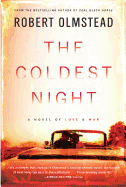Over a cup of coffee in a diner, impassioned publisher and thankful husband Rudy Shur convinced Dr. Raymond Chang he shouldn't wait until retirement to write Beyond the Magic Bullet: The Anti-Cancer Cocktail (Shelf Awareness, January 31, 2012). Of the myriad health titles that Shur, the founder of Square One Publishers, has worked on over the years, none was inspired by as compelling and personal of a reason as this one.
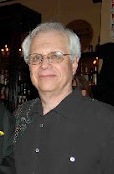 In 2007, Shur's wife, Erica, was diagnosed with anaplastic thyroid cancer (ATC). The rare, aggressive cancer has an extremely high mortality rate and usually claims a patient's life within several months. Conventional treatments are largely ineffectual, as surgery cannot cure ATC and radiation and chemotherapy offer minimal benefits. Even the many oncologists the family consulted encouraged them to try another approach. "They told us they didn't have anything for us, which is depressing, but they were being honest," recalled Shur.
In 2007, Shur's wife, Erica, was diagnosed with anaplastic thyroid cancer (ATC). The rare, aggressive cancer has an extremely high mortality rate and usually claims a patient's life within several months. Conventional treatments are largely ineffectual, as surgery cannot cure ATC and radiation and chemotherapy offer minimal benefits. Even the many oncologists the family consulted encouraged them to try another approach. "They told us they didn't have anything for us, which is depressing, but they were being honest," recalled Shur.
On the day Erica underwent surgery, Shur read a Wall Street Journal article profiling several people who had successfully beat the odds against terminal cancer using the "cocktail" strategy. The anti-cancer cocktail is a combination of nutritional supplements and off-label drugs, such as antibiotics, antidepressants and statins, which have shown some kind of effectiveness against cancer. A similar approach was used successfully to fight AIDS in the 1990s.
When Shur started asking around for a qualified doctor to work with on the alternative method, Dr. Chang's name came up more than once. Currently on the faculty of the Weill Cornell Medical College and in private practice in New York City, Dr. Chang was educated at Brown University and previously worked at the Memorial Sloan-Kettering Cancer Center.
A week after Erica finished radiation treatments, she began the cocktail therapy. The ATC came back twice and tumors were removed from her lungs, with each occurrence indicating significant improvement. For the last three and a half years, she has been cancer free. Erica's outcome inspired Shur to use the medium at his disposal to get the word out about the anti-cancer cocktail.
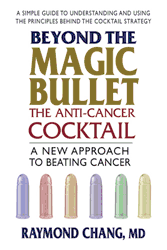 "If this can help broaden the approaches being used against cancers that have no immediate cures/treatments, I thought it would be helpful to get a book out there and touch that many more lives," said Shur. "If there isn't any current magic bullet to fight a cancer, does it not make more sense to throw the kitchen sink at it as long as it doesn't hurt the patient?" In addition, he noted, the cocktail approach is a fraction of the cost of chemotherapy.
"If this can help broaden the approaches being used against cancers that have no immediate cures/treatments, I thought it would be helpful to get a book out there and touch that many more lives," said Shur. "If there isn't any current magic bullet to fight a cancer, does it not make more sense to throw the kitchen sink at it as long as it doesn't hurt the patient?" In addition, he noted, the cocktail approach is a fraction of the cost of chemotherapy.
In 1976, Shur co-founded the Avery Publishing Group, which developed a specialty in alternative health books. His interest in the topic began after a friend, who was in his late 20s, passed away from cancer after a two-year battle. In a series of operations, doctors removed the patient's jaw, cheekbone and parts of his skull in a futile effort to stave off the disease. Motivated to research the realm of alternative healthcare, "I started to understand there was more to health than just taking a vitamin," Shur said. "I certainly have nothing against conventional medicine, but when they don't have an answer, it's important to recognize that fact."
Shur has continued the tradition of publishing alternative health titles at Square One and is on a mission to create awareness for Beyond the Magic Bullet and to make sure cancer patients and their caregivers know cocktail therapy is as option. "If we can do that, there's a good chance we can add to the arsenal of treatments we have not just against the deadly ones but all cancers," said Shur. "It would be an amazing thing to pop 10 pills a day and wind up wiping out a cancer."
The foreword to Beyond the Magic Bullet was written by Ben Williams, a psychology professor at the University of California at San Diego and the author of Surviving 'Terminal' Cancer: Clinical Trials, Drug Cocktails, and Other Treatments Your Oncologist Won't Tell You About. After being diagnosed with a type of brain cancer considered a "death sentence," Williams treated himself using the cocktail approach. That was 16 years ago.
When Dr. Chang informed his publisher he had lined up someone to write the foreword, Shur realized Williams had been featured in the Wall Street Journal article he read the day Erica went into surgery. Also profiled in the piece was a defense-contractor recruiter who, inspired by Williams's book, devised a cocktail for his seven-year-old son, who suffered from an often-fatal cancer of the nerves.
"Just like the father who saved his son, when I turn to my wife and look at her, I feel blessed that she's still around," Shur said. "She's in great shape. That moment in her life when the door seemed to be closing, it never closed. If there's something out there that can help people, the least we can do is let them know." --Shannon McKenna Schmidt
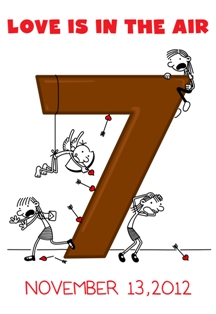 The seventh Diary of a Wimpy Kid book will be launched simultaneously in seven countries, the first-ever global launch for a Wimpy Kid title.
The seventh Diary of a Wimpy Kid book will be launched simultaneously in seven countries, the first-ever global launch for a Wimpy Kid title.






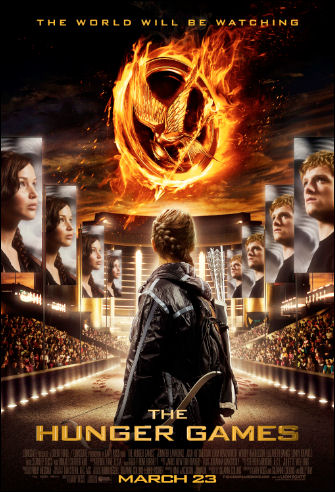 Midnight showings nationwide tonight officially mark the opening of the national holiday heretofore known as Hunger Games Friday. As early as Tuesday,
Midnight showings nationwide tonight officially mark the opening of the national holiday heretofore known as Hunger Games Friday. As early as Tuesday, 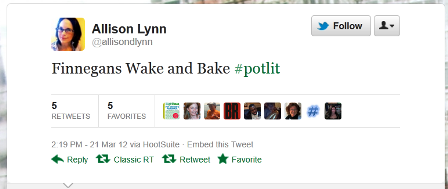
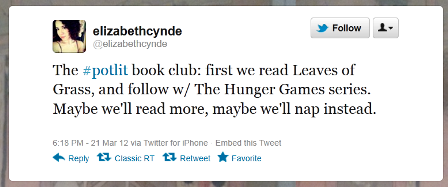
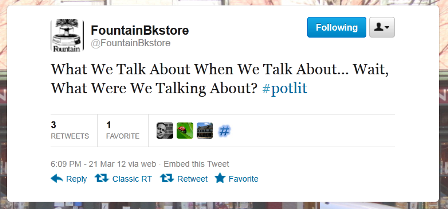
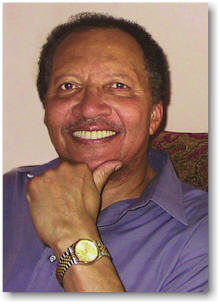 Author and National Ambassador for Young People's Literature Walter Dean Myers will serve as the honorary chair of annual children's art auction at BookExpo America that is sponsored by the ABC Children's Group at the American Booksellers Association. Proceeds of the auction and reception will help support the American Booksellers Foundation for Free Expression and its Kids' Right to Read Project, which opposes the hundreds of challenges to books that occur in schools and libraries every year.
Author and National Ambassador for Young People's Literature Walter Dean Myers will serve as the honorary chair of annual children's art auction at BookExpo America that is sponsored by the ABC Children's Group at the American Booksellers Association. Proceeds of the auction and reception will help support the American Booksellers Foundation for Free Expression and its Kids' Right to Read Project, which opposes the hundreds of challenges to books that occur in schools and libraries every year. Gottwals Books
Gottwals Books


 Congratulations to
Congratulations to  Last week San Francisco's Beat Museum hosted a celebration on what would have been Jack Kerouac's 90th birthday. Beat and neo-Beat poets read Kerouac-inspired work and a scroll--in the tradition of Kerouac's On the Road--was passed through the audience for their reminiscences and inspirations. At end of the event, Viva Editions associate publisher Brenda Knight (center) and poet Nick Belardes (right) presented the scroll to Beat Museum proprietor Jerry Cimino (left).
Last week San Francisco's Beat Museum hosted a celebration on what would have been Jack Kerouac's 90th birthday. Beat and neo-Beat poets read Kerouac-inspired work and a scroll--in the tradition of Kerouac's On the Road--was passed through the audience for their reminiscences and inspirations. At end of the event, Viva Editions associate publisher Brenda Knight (center) and poet Nick Belardes (right) presented the scroll to Beat Museum proprietor Jerry Cimino (left). "Samuel Beckett, what a man. You'd never guess that something like this would be popular in the hills of Thailand," said George O'Brien, pulling a copy of Waiting for Godot from a shelf at his
"Samuel Beckett, what a man. You'd never guess that something like this would be popular in the hills of Thailand," said George O'Brien, pulling a copy of Waiting for Godot from a shelf at his 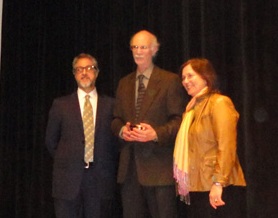
 In 2007, Shur's wife, Erica, was diagnosed with anaplastic thyroid cancer (ATC). The rare, aggressive cancer has an extremely high mortality rate and usually claims a patient's life within several months. Conventional treatments are largely ineffectual, as surgery cannot cure ATC and radiation and chemotherapy offer minimal benefits. Even the many oncologists the family consulted encouraged them to try another approach. "They told us they didn't have anything for us, which is depressing, but they were being honest," recalled Shur.
In 2007, Shur's wife, Erica, was diagnosed with anaplastic thyroid cancer (ATC). The rare, aggressive cancer has an extremely high mortality rate and usually claims a patient's life within several months. Conventional treatments are largely ineffectual, as surgery cannot cure ATC and radiation and chemotherapy offer minimal benefits. Even the many oncologists the family consulted encouraged them to try another approach. "They told us they didn't have anything for us, which is depressing, but they were being honest," recalled Shur. "If this can help broaden the approaches being used against cancers that have no immediate cures/treatments, I thought it would be helpful to get a book out there and touch that many more lives," said Shur. "If there isn't any current magic bullet to fight a cancer, does it not make more sense to throw the kitchen sink at it as long as it doesn't hurt the patient?" In addition, he noted, the cocktail approach is a fraction of the cost of chemotherapy.
"If this can help broaden the approaches being used against cancers that have no immediate cures/treatments, I thought it would be helpful to get a book out there and touch that many more lives," said Shur. "If there isn't any current magic bullet to fight a cancer, does it not make more sense to throw the kitchen sink at it as long as it doesn't hurt the patient?" In addition, he noted, the cocktail approach is a fraction of the cost of chemotherapy.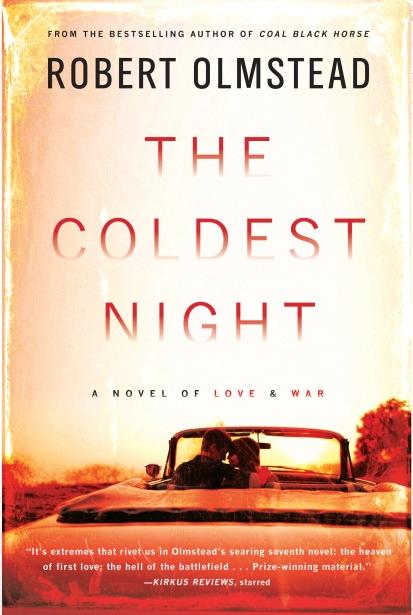 Over the course of a trilogy of novels, Robert Olmstead has chronicled a century of war and its aftermath in the lives of the men of the Childs family. In Coal Black Horse (2007), Robey Childs confronts the horrors of the Civil War in search of his father; then Napoleon Childs chases Pancho Villa through the mountains of Mexico in Far Bright Star (2009). In the concluding volume, The Coldest Night, Olmstead brings us the even darker tale of Robey's grandson Henry, from a fatherless childhood through the bloody Battle of the Chosin Reservoir in the Korean War until, scarred inside and out, he finally returns to his West Virginia home town--where all that remain of the Childs family are his mother's grave and a surviving aunt.
Over the course of a trilogy of novels, Robert Olmstead has chronicled a century of war and its aftermath in the lives of the men of the Childs family. In Coal Black Horse (2007), Robey Childs confronts the horrors of the Civil War in search of his father; then Napoleon Childs chases Pancho Villa through the mountains of Mexico in Far Bright Star (2009). In the concluding volume, The Coldest Night, Olmstead brings us the even darker tale of Robey's grandson Henry, from a fatherless childhood through the bloody Battle of the Chosin Reservoir in the Korean War until, scarred inside and out, he finally returns to his West Virginia home town--where all that remain of the Childs family are his mother's grave and a surviving aunt.